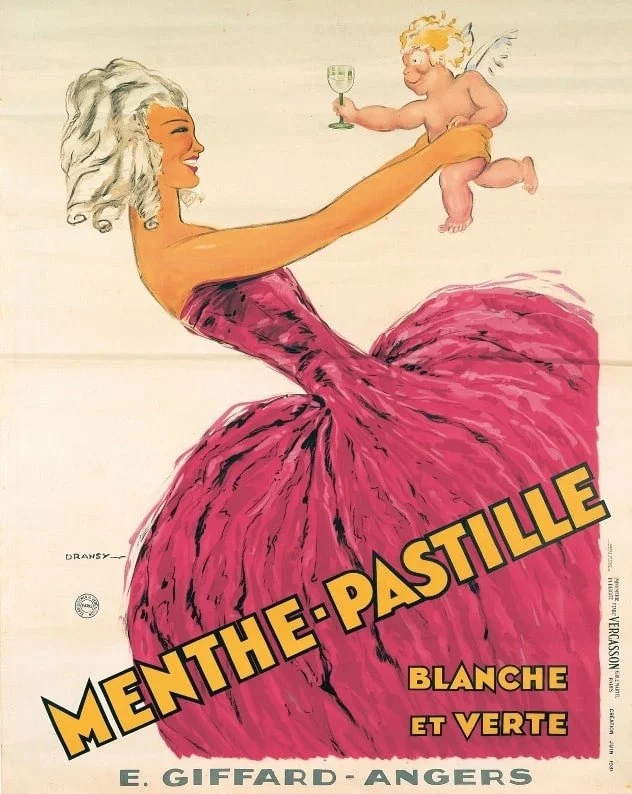Why I Love Paris
December 1927
BY O.O. MCINTYRE
Being a flop-eared country boy, just a few years removed from the south end of a northbound Missouri plow, it is quite natural that the glitter of Paris would have a sweeping and voluptuous appeal. I am quite conscious of my seasonal visits to the French capital. I lack that exquisite insolence of a certain metallic savoir-faire. For each visit, I bring Mrs. McIntyre and my mother-in-law. I have found something about Paris that few Americans discover, and that is that despite its worldliness, it has the disarming simplicity of a country town. And that, messieurs and mesdames, is why I love it.
Paris is looked upon by many Americans as a rousing community only for sophisticates destined for amorous exploits. To me, it has the cracker-barrel appeal of the cut-ups in front of the Main Street general store.
I feel as much at home in Paris as with the gang in front of the livery stable in my hometown of Plattsburgh, Missouri. I am not saying it is not a heartening pot for Don Juans or for those thwarted Juliets fatigued by innumerable and inadequate Romeos, but I do insist that it has its other side—the yokel or clodhopper side, if you please. I drop into the different haunts and find the same camaraderie that exists along Main Street. Even the same emotions, the same hopes, and the same little disillusionments.
Paris is looked upon by many Americans as a rousing community only for sophisticates destined for amorous exploits.
I find the valiant Floyd Gibbons, veteran correspondent, war hero, and Sahara explorer, taking his Vichy cure in Paris before mounting the gangplank to be off to some outer corner of the world. He always has a good story with a locale, perhaps in Timbuktu, so, as he naively adds, it cannot be checked up.
Dudley Field Malone, the commuting lawyer, who flits from New York to Palm Beach, to Hollywood and elsewhere—but always back to his beloved Paris. An Irishman who loves a scrap—verbal or fistic—but whose nature is in reality as gentle as a lamb. He is the best-known man in New York and about the best-known American in Paris, and that moniker still fits him.
Down around the corner from the Rue de la Paix in the Rue Daunou, one finds Harry MacElhone and his famous New York Bar—and the cluster of barflies—b-z-z-z, b-z-z-z! A quaint spot; the town hall steps and the prescription counter of the village drug store, in one. Here will be found travelers from all over the world with a soupçon of local journalists and, of course, the buzzing barflies. Every time I step in to see Harry, he seems to be away, but he has the sort of place that seems to run itself. He is a canny little Scot, but he can be induced to buy a drink just the same.
These and other places give my sterile Remington something fruitful to peck at. There are scads of them, but I cannot in this space mention them all. They, to me, epitomize that rare country-town spirit in Paris that I love. There is a saying in America that you can get a boy out of the country, but you cannot get the “country” out of the boy. That is my attitude in Paris. My eyes are continually saucered in awe.
I live in New York and in Paris too—but when I come here, my heart is with the Cook’s tourists, for I believe they have most of the fun. Too many come to Paris and leave it with a memory only a dull blur.
Too many come to Paris and leave it with a memory only a dull blur.
They go to their boat trains with headaches made only for a horse, and they wonder how Parisians and Americans here stand the pace. Really, to enjoy Paris, one must approach it with the idea that any beverage more Corybantic than coffee is deadly.
Then they can enjoy those lovely, cool, tan-park paths in the Bois where hand-holding lovers stop suddenly and embrace, with eyes as moist as frightened deer. They can enjoy the rare artistic treasures, the gorgeous boulevards unwinding like smooth bolts of ribbon, the Louvre, Luxembourg, the Eiffel Tower, the dazzling shops, the rare foods, and the myriad things making Paris so delightful and different.
This may sound like a temperance sermon, but it doesn’t matter. It is, after all, the way to see and enjoy Paris—and to enjoy its small-town hospitality.


